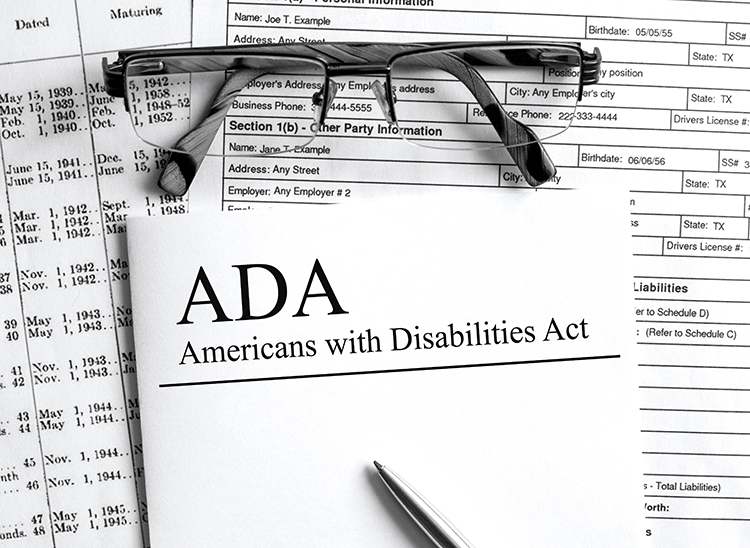Disability rights advocates challenge California's bar exam accommodation process

Image from Shutterstock.
Updated: Two disability rights groups have filed a U.S. Department of Justice complaint against the State Bar of California alleging that the agency “consistently” violates the Americans With Disabilities Act regarding bar exam accommodation requests.
Meanwhile, a California bar spokesperson told the ABA Journal in an email that the agency is considering ways to streamline the testing accommodation process.
The complaint was filed in May by the Disability Rights Education and Defense Fund and Disability Rights Advocates on behalf of four law school graduates, according to a May 18 news release.
Allegations include that the California bar does not respond to accommodation requests in a timely manner, requires expensive assessments not covered by insurance, and doesn’t give deference to professionals who made individualized assessments.
Instead, deference is given to consultants retained by the state bar, according to the complaint.
“These consultants routinely second-guess reasonable judgments from qualified professionals while reaching for conclusions inconsistent with the weight of evidence. They also demand extensive analysis of disability inconsistent with the ADA,” according to the complaint.
According to a state bar spokesperson, the agency is using the Law School Admission Council’s consent decree and DOJ testing accommodations guidelines as guidance for reviewing and evaluating its testing accommodations process.
A goal, the spokesperson wrote, is “streamlining that process and limiting many applicants’ need to provide new supporting documentation by instead relying on proof of past testing accommodations on high stakes exams.”
The spokesperson added that the agency has proposed a new set of testing accommodation rules, which will soon be circulated for public comment.
For the LSAC matter, in which the DOJ was an intervenor, the parties agreed to a consent decree in 2014. It included language that the LSAC would automatically grant most testing accommodations in which a candidate could show that they had received one previously on postsecondary admissions tests, such as the SAT or the GED.
The California bar complaint seeks automatic grants for extra time when similar arrangements were provided in law school, deference to treating consultants over state bar reviewers, and that substantial weight be given to candidates’ histories of testing accommodations.
Bar applicants have expressed similar frustrations in other jurisdictions.
Updated June 14 at 3:30 p.m. to correctly reference that two disability rights groups have filed a complaint against the State Bar of California.
Write a letter to the editor, share a story tip or update, or report an error.



